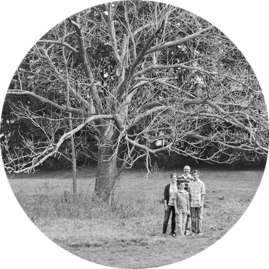"Everyone who competes in the games goes into strict training. They do it to get a crown that will not last; but we do it to get a crown that will last forever." 1 Corinthians 9:25
I think the idea expressed in what Paul writes above is one of the more cumbersome ideas to live out. Here's why: we preach the gospel (as we should) and proclaim that salvation will never, ever be a result of our own works (which is of utmost truth and high priority). But then we are stuck with this idea that "works" are bad and it carries over into how we live our lives after we believe in Jesus and receive the full impact of the gospel. That's why, when we begin to preach or teach on the idea of some types of "disciplines" for the follower of Jesus that people get scared or intimidated - or worse. But discipline, or training, is a natural part of our existence in this life, and is also a natural way of existence in the Kingdom of God.
If I want to learn to type, or hit a baseball, or speak German, or become a discus thrower, or drive, then I will need some training. I will have to "work" at it. This isn't a bad thing; it's the natural thing to do. In fact, it's the only way. We simply can't learn to do all these things automatically - it will require effort and training and discipline. Simply put, training or discipline is just a vehicle to learn to do what we could not already do naturally. That's why Paul says in the verse above that those who compete in games (think Olympics, that was more in line with what Paul was referring to) need to go into strict training. In other words, they exert effort through exercising their muscles, stretching those muscles, eating certain foods, abstaining from certain foods, and getting proper rest. As a result, they are prepared for the task at hand. Paul then teaches us that athletes train to get a perishable crown (it was usually a wreath for the head - basically the ancient version of a gold medal), but "we do it" to get a crown that will last forever. We do what? Train.
I know this may strike you as odd, but Jesus trained too. Putting aside the unanswerable theological question of when (as in what age) Jesus knew He was the Messiah, we read something interesting in Luke 2:52, "And Jesus grew in wisdom and stature, and in favor with God and men." At this point, Jesus was 12 years old (a significant time in the life of a Jewish boy as he moves from child to man). He had stayed back in Jerusalem after the Feast of Passover, even though his parents had left and were making their way with a caravan of people back to Nazareth. They traveled a full day, then realized Jesus wasn't with them. When they finally found him back in Jerusalem a couple of days later, He was in the Temple (His Father's House). And guess what he was doing: "After three days they found him in the temple courts, sitting among the teachers, listening to them and asking them questions" (Luke 2:46). He was training.
We see from Paul, and certainly from the life of Jesus, that training is not a bad thing - discipline in the way of Jesus is not a bad thing. It's the normal thing. But how do we reconcile that to the fact that "works" is not a part of our salvation. Well, maybe we should look at it this way as we understand what "works" really means. As Dallas Willard aptly put it: "God is not opposed to effort, He is opposed to earning." Did you catch that? One is an action ("effort") and the other is an attitude ("earning"). To take action in the way of Jesus is simply to reflect an understanding of what the Kingdom of God really is; namely, God in action.
So don't fear training. Some of you already do it in the normal course of your life. You are trained at work. Maybe you are studying (training) at school. Or possibly you are someone who exercises frequently. In all of these cases, you already understand training. Now job number one for you and I is to make sure that our training in the way of Jesus is the priority. Paul said it this way: "For physical training is of some value, but godliness has value for all things, holding promise both for the present life and the life to come" (1 Timothy 4:8).
